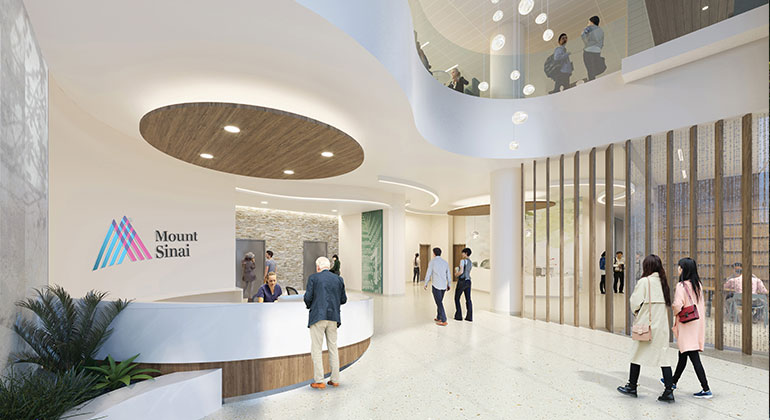Scientists Discover Metabolic Pathway That Drives Tumor Growth in Aggressive Cancers
Mount Sinai researchers have discovered that a rheumatoid arthritis drug can block a metabolic pathway that occurs in tumors with a common cancer-causing gene mutation, offering a new possible therapy for aggressive cancers with few therapeutic options, according to a study to be published in Cancer Discovery.
Ramon Parsons, MD, PhD, Ward-Coleman Chair in Cancer Research and Chair of the Department of Oncological Sciences at the Icahn School of Medicine at Mount Sinai, led a team that studied how a mutation of the PTEN gene rewires a metabolic pathway in tumors, channeling increased amounts of the amino acid glutamine into the pathway, speeding up DNA production, and causing uncontrolled growth of the tumor. The team discovered that leflunomide, an oral rheumatoid arthritis drug approved by the U.S. Food and Drug Administration, blocks an enzyme in this pathway and damages the DNA created through the pathway, killing PTEN mutant cancer cells while leaving healthy cells untouched.
Parsons and his team transplanted human breast cancer cells into mice to test leflunomide’s efficacy. Leflunomide drastically reduced the breast cancer tumors in the mice.
“Finding successful targeted therapies for cancer is a challenging but important goal in the face of insufficient treatment options,” said Dr. Parsons, who discovered the PTEN gene. “Targeted therapies that are tumor-specific are much needed, and identifying changes based on specific tumor suppressor or oncogene alterations will facilitate this effort. Due to the high mutation rate of PTEN in cancer, the effects of PTEN could be at the heart of targeted therapy.”
This discovery has implications in aggressive cancers with the PTEN mutation and few treatment options such as triple negative breast cancer, prostate cancer, endometrial cancer, and glioblastoma, a brain cancer. Dr. Parsons hopes to create a clinical trial to further test leflunomide in patients with breast and colon cancer.
This research was funded by NCI R01CA082783, R01CA155117, and P01CA97403 (R.P.), and partially supported by NIH grants 5P01CA120964 and 5P30CA006516 (J.MA.), and R01 GM041890 and the Breast Cancer Research Foundation (L.C.).
About the Mount Sinai Health System
Mount Sinai Health System is one of the largest academic medical systems in the New York metro area, with 48,000 employees working across eight hospitals, more than 400 outpatient practices, more than 600 research and clinical labs, a school of nursing, and a leading school of medicine and graduate education. Mount Sinai advances health for all people, everywhere, by taking on the most complex health care challenges of our time—discovering and applying new scientific learning and knowledge; developing safer, more effective treatments; educating the next generation of medical leaders and innovators; and supporting local communities by delivering high-quality care to all who need it.
Through the integration of its hospitals, labs, and schools, Mount Sinai offers comprehensive health care solutions from birth through geriatrics, leveraging innovative approaches such as artificial intelligence and informatics while keeping patients’ medical and emotional needs at the center of all treatment. The Health System includes approximately 9,000 primary and specialty care physicians and 11 free-standing joint-venture centers throughout the five boroughs of New York City, Westchester, Long Island, and Florida. Hospitals within the System are consistently ranked by Newsweek’s® “The World’s Best Smart Hospitals, Best in State Hospitals, World Best Hospitals and Best Specialty Hospitals” and by U.S. News & World Report's® “Best Hospitals” and “Best Children’s Hospitals.” The Mount Sinai Hospital is on the U.S. News & World Report® “Best Hospitals” Honor Roll for 2024-2025.
For more information, visit https://www.mountsinai.org or find Mount Sinai on Facebook, Twitter and YouTube.

Study Identifies New Gene That Drives Colon Cancer
Oct 14, 2022 View All Press ReleasesUnprecedented Therapy Found Effective for Blood Cancer Patients With No Treatment Options
Aug 22, 2019 View All Press Releases
